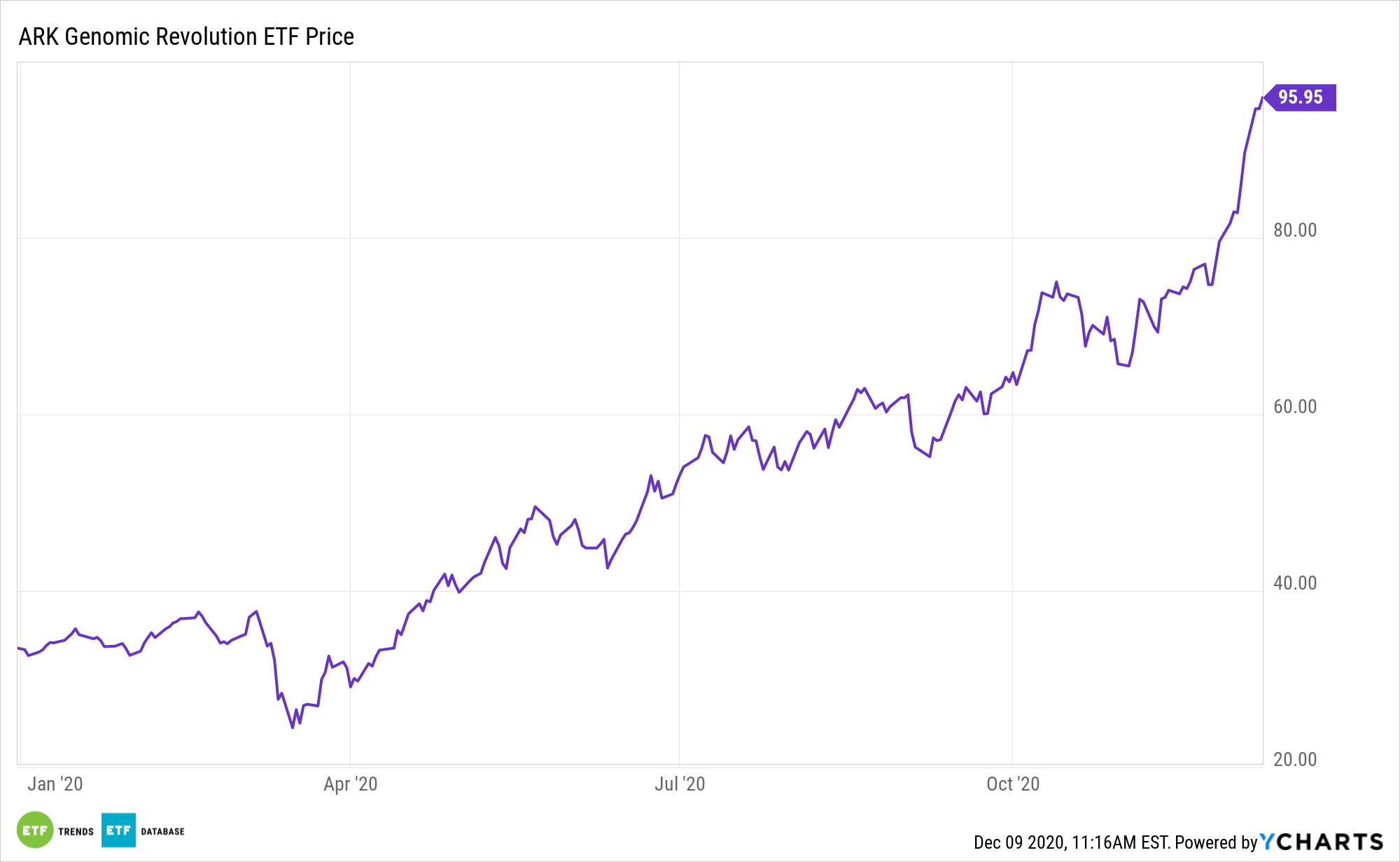One of the most compelling elements in the genomics investment thesis is that costs are declining, making the next generation of healthcare solutions more accessible. That trend also benefits financial assets, such as the ARK Genomic Revolution Multi-Sector Fund (CBOE: ARKG).

Many of the technologies in the genomics realm were once pricey, but that’s trend is changing for the better. Many new advancements in areas like protein structures are more affordable than ever before.
“Clinical pipelines seem to be undervalued because next generation sequencing (NGS), artificial intelligence (AI), and CRISPR and other gene therapies will boost their efficiency, shorten development timelines, reduce failure rates, and increase returns on investment dramatically,” writes ARK analyst Ali Urman.
In Genomics, Less Can Be More
Genomics companies spend a plethora of time and massive amounts of money to fund breakthrough biological treatments and diagnostic tools. Blossoming developments can literally change their fortunes, and the fortunes of their shareholders, overnight. Genomics will be an integral part of the biotechnology growth story in the years ahead.
Declining costs make technologies like genetic testing, more attractive for healthcare professionals, potentially leading to better patient outcomes. Consider the impact AI can have on the genomics industry.
“AI should reduce time-to-market by accelerating the recruitment for clinical trials, particularly by identifying the clinical trial sites with the largest relevant patient pools,” reports Urman.
ARKG includes companies that merge healthcare with technology and capitalize on the revolution in genomic sequencing. These companies try to better understand how biological information is collected, processed and applied by reducing guesswork and enhancing precision; restructuring health care, agriculture, pharmaceuticals and enhancing our quality of life.
Alphabet’s AlphaFold could play a crucial in driving genomics costs lower while boosting efficiency and efficacy.
“Based on our research on these technologies, before learning of DeepMind’s breakthrough, biotech companies could harness them to accelerate time-to-market by 25% and reduce trial failures by 10%,” writes Urman. “AlphaFold could improve those rates, as 40% of all R&D costs are pre-clinical. Potentially applicable to all proteins and to protein-to-protein interactions, NN-based algorithms could turbocharge human therapies and agricultural breakthroughs.”
For more on disruptive technologies, visit our Disruptive Technology Channel.
The opinions and forecasts expressed herein are solely those of Tom Lydon, and may not actually come to pass. Information on this site should not be used or construed as an offer to sell, a solicitation of an offer to buy, or a recommendation for any product.

